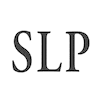Finding the Enemy
On the Appointment of John Locke To Christ Church College
Having come under the watchful gaze of the monarchy, Locke became subject to the Crown’s strict surveillance and schemes. When he took up a position in Christ Church College, it was demanded that his job be taken from him.
Introduction
Background
Background Goes Here
Further Reading
Tyrrell and Bibliotheca Politica:
- ODNB’s Biography of Tyrrell: http://www.oxforddnb.com/view/10.1093/ref:odnb/9780198614128.001.0001/odnb-9780198614128-e-27953?rskey=rLFVKj&result=7
- Rudolph, Julia. Revolution by Degrees : James Tyrell and Whig Political Thought in Late Seventeenth Century. Studies in Modern History. Houndmills, Basingstoke, Hampshire: Palgrave, 2002.
- Rudolph, Julia. Resistance in Tyrrell’s Bibliotheca Politica:the People and the Convention. 2002. 124-47. doi:10.1057/9781403990273_5.
- Full Length Edition of Bibliotheca Politica: https://archive.org/details/bibliothecapolit00tyrr
Also by Tyrrell:
- Patriarcha non monarcha. The patriarch unmonarch’d: being observations on a late treatise and divers other miscellanies, published under the name of Sir Robert Filmer baronet. In which the falseness of those opinions that would make monarchy jure divino are laid open: and the true principles of government and property (especially in our kingdom) asserted. By a lover of truth and of his country, 1681
- A brief disquisition of the law of nature, according to the principles laid down in the reverend Dr. Cumberland’s (now Lord Bishop of Peterborough’s) Latin treatise on that subject. As also his considerations of Mr. Hobbs’s principles put into another method, 1692
- The General History of England, both Eccesiastical and Civil (5 volumes, published between 1700 and 1704)
Citations
Source
https://oll.libertyfund.org/pages/locke-john-1632-1704; according to the text, these transcriptions come from “Dr. Birch’s papers in the Museum”
[Sunderland to Fell]
“Whitehall, Nov. 6, 1684.
The king having been given to understand that one Locke, who belonged to the late earl of Shaftesbury, and has, upon several occasions, behaved himself very factiously against the government, is a student of Christ-Church; his majesty commands me to signify to your lordship, that he would have him removed from being a student, and that, in order thereunto, your lordship would let him know the method of doing it…”
[Fell to Sunderland]
Nov. 8, 1684.
“To the right hon. the earl of Sunderland, principal secretary of state:
Right honourable, I have received the honour of your lordship’s letter, wherein you are pleased to inquire concerning Mr. Locke’s being a student of this house, of which I have this account to render: that he being, as your lordship is truly informed, a person who was much trusted by the late earl of Shaftsbury, and who is suspected to be ill affected to the government, I have for divers years had an eye upon him; but so close has his guard been on himself, that after several strict inquiries, I may confidently affirm, there is not any man in the college, however familiar with him, wo had heard him speak a word either against or so much as concerning the government; and although very frequently, both in public and private, discourses have been purposely introduced to the disparagement of his master, the earl of Shaftesbury, his party and designs; he could never be provoked to take any notice, or discover in word or look the least concern. So that I believe there is not a man in the world soc much master of taciturnity and passion. He has here a physician’s place, which frees him from the exercise of the college, and the obligation which others have to residence in it, and he is now abroad for want of health; but notwithstanding this, I have summoned him to return home, which is done with this prospect, that if he comes back, he will be liable to expulsion for contumacy; and if he does, he will be answerable to the law for that which he shall be found to have done amiss. It being probably that, though he may have been thus cautious here where he knew himself suspected, he has laid himself more open at London, where a general liberty of speaking was used, and where the execrable designs against his majesty and government were managed and pursued. If he don’t return by the first of January, which is the time limited to him, I shall be enabled of course to proceed against him to expulsion. But if this method seems not effectual or speedy enough, and his majesty, our founder and visitor, shall please to command his immediate remove, upon the receipt thereof, directed to the dean and chapter, it shall accordingly be executed, by your lordship’s…”
[Second letter from Sunderland to the bishop of Oxon]
“My lord, having communicated your lordship’s of the 9th to his majesty, he has thought fit to direct me to send you the inclosed concerning his commands for the immediate expulsion of Mr. Locke.”
[The inclosed warrant, addressed to the dean, Nov. 12]
“Whereas we have received information of the factious and disloyal behaviour of Locke, one of the students of that our college; we have thought fit hereby to signify our will and pleasure to you, that you forthwith remove him from his student’s place, and deprive him of all rights and advantages thereunto belonging, for which this shall be your warrant. And so we bit you heartily farewell. Given at our court of Whitehall, the 11th day of Nov. 1684. By his majesty’s command, Sunderland.”
[Bishop to Sunderland, Nov. 16]
“Right honourable, I hold myself bound to signify to your lordship, that his majesty’s command for the expulsion of Mr. Locke from this college is fully executed.”
[Sunderland to bishop of Oxon]
“I have your lordship’s of the 16th, and have acquainted his majesty therewith, who is well satisfied with the college’s ready obedience to his commands for the expulsion of Mr. Locke.”
EARLY ACCESS: Transcription is under editorial review and may contain errors.
Please do not cite or otherwise reproduce without permission.
